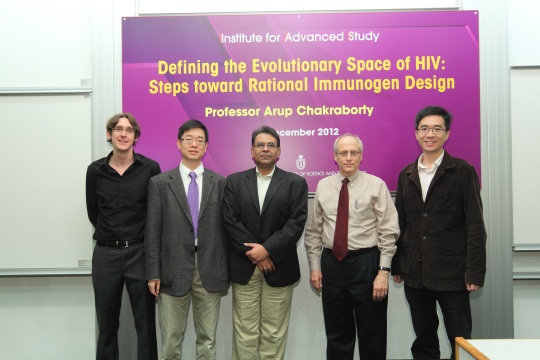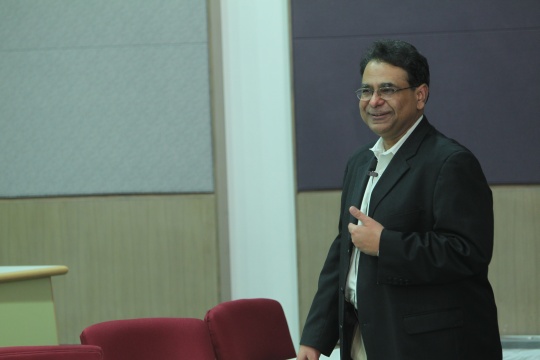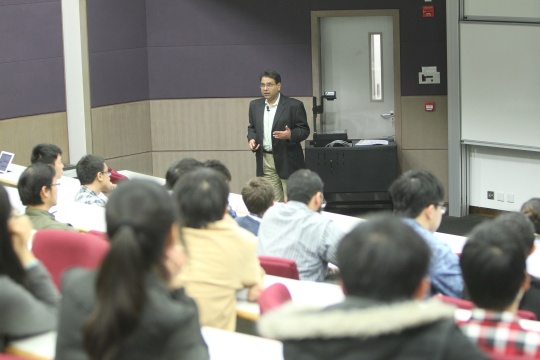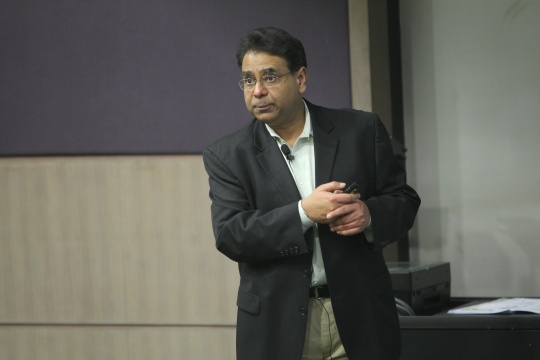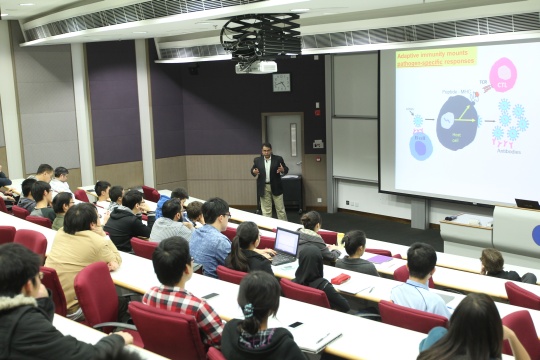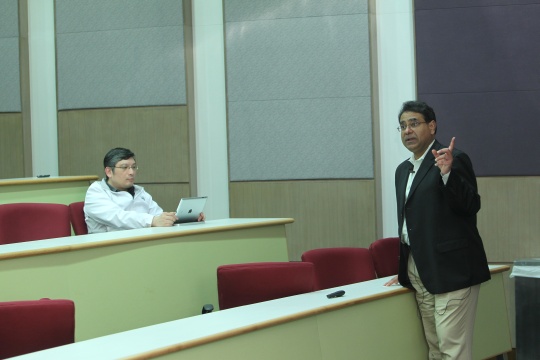Defining the Evolutionary Space of HIV: Steps toward Rational Immunogen Design
Abstract
HIV continues to wreak havoc around the world, especially in poor countries. A vaccine is urgently needed to overcome this major global health challenge. The speaker will describe key challenges that must be confronted to achieve this goal. He will then focus on some work that aims to address a part of these challenges by bringing together theory and computation (rooted in physics and engineering), consideration of structures of multi-protein assemblies, basic immunology, and human clinical data. The results of these studies define the evolutionary space accessible to HIV by constructing the fitness landscape of viral proteins as a function of mutations. The speaker's work suggests the design of immunogens that could be components of vaccines that might elicit immune responses which might be able to hit HIV where it hurts upon natural infection.
About the speaker
Prof. Arup Chakraborty received his PhD in Chemical Engineering from the University of Delaware in 1988. He joined the University of California at Berkeley, where he became the Warren and Katherine Schlinger Distinguished Professor and Chair of Chemical Engineering. In 2005, he moved to the Massachusetts Institute of Technology (MIT) and is currently the Robert T. Haslam Professor of Chemical Engineering, Chemistry, and Biological Engineering. He is a founding member of the Ragon Institute of MIT, Massachusetts General Hospital, and Harvard. He is also the founding Director of MIT’s Institute of Medical Engineering and Science.
For over twelve years, the central theme of Prof. Chakraborty’s research has been the development and application of theoretical/computational approaches to study how T lymphocytes, orchestrators of the adaptive immune response, function. Over the previous three years, this has included efforts to study the human immune response to HIV. A characteristic of his work is the impact of his studies on experimental immunology, and more recently, clinical studies (he collaborates extensively with leading immunologists).
Prof. Chakraborty’s work at the interface of the physical, life, and engineering sciences has been recognized by many honors that include a NIH Director’s Pioneer Award, the E.O. Lawrence Memorial Award for Life Sciences, the Allan P. Colburn and Professional Progress awards of the American Institute of Chemical Engineers, a Camille Dreyfus Teacher-Scholar award, a Miller Research Professorship, and a National Young Investigator award. Prof. Chakraborty is a member of the US National Academy of Engineering and a fellow of the American Academy of Arts and Sciences and the American Association for the Advancement of Science.

